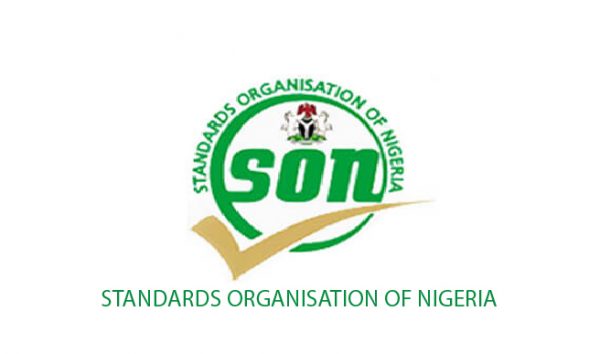In a bid to enhance the check on the importation of fake and substandard products into the country in line with established protocols, plans are underway to operationalise the National Single Window project as well as deploy scanners at the nation’s seaports before the end of the year.
The Minister of Industry, Trade and Investment, Otunba Adeniyi Adebayo, stated this on Monday at an investigative hearing on the incessant influx of fake, substandard and counterfeit products into the country, organised by the House of Representatives Joint Committee on Commerce; Industry; Information; National Orientation; Ethics and Values.
The Minister said there is an implementation committee at work, of which he is a member, to ensure the single window and scanners are deployed appropriately.
According to Adebayo: “This will significantly improve cargo turnaround time at our ports, promote efficiency and transparency, thereby removing the corruption opportunities that fuel the entry of substandard goods into the country, and enhance Nigerian ports’ competitiveness in the West African region.”

In the same vein, the Federal Government is calling on relevant agencies to further strengthen the enforcement of the Standards Organisation of Nigeria Conformity Assessment Programme alongside proposed PEBEC reform interventions.
Under the programme, importers of a wide range of goods must obtain two certificates in order to operate: Product Certificate, either unregistered, registered or licensed; and the SONCAP Certificate.
The Special Adviser to the President on Ease of Doing Business, Dr. Jumoke Oduwole, represented at the hearing by Oluwatoyin Bashir, said the action would further complement the efforts of the Buhari Administration aimed at improving efficiency at port operations.
Oduwole said the decision to streamline the operations of agencies at the port was first implemented by the previous administration in 2011, and again reinforced in 2018.
She noted that the decision was based on empirical findings and taken following extensive stakeholder engagement after some agencies had again returned to the ports.
She said streamlining agencies’ operations at the port is at the core of Nigeria’s ease of doing business reforms and in line with global best practices aimed at removing bureaucratic constraints and reducing costs to doing business at the ports.
Oduwole, however, commended the Standards Organisation of Nigeria for the phased automation of compliance certification process amongst other innovations in their operations.
Earlier in his remarks at the opening of the hearing, the Speaker of the House of Representatives, Hon. Femi Gbajabiamila, represented by the Minority Leader, Hon. Ndidi Elumelu, commended the effort of the Joint Committee and was hopeful that the hearing will unravel the root causes of the menace of influx of counterfeited products into Nigeria.
In his opening remarks, the Chairman of the House Committee on Commerce, Hon. Olufemi Fakeye, stated that the hearing was vital to curbing the incidence of substandard products that has led to avoidable incidents in the country.
Fakeye said the hearing “will also contribute to the arduous task of addressing the challenges of eradicating imported counterfeit products, particularly in view of Nigeria’s commitment to the African Continental Free Trade Agreement”.
With the Single Window, port community portal and functional scanners at the ports, PEBEC aims to ensure that save the exception of the lead agencies, Nigerian Customs Service, Nigerian Ports Authority and Nigerian Police Force, there will be little or no need for routine physical examination of cargo by additional agencies at the ports.
Presentations were also made by the representatives of the Standards Organisation of Nigeria and National Agency for Food and Drug Administration and Control amongst other stakeholders.

